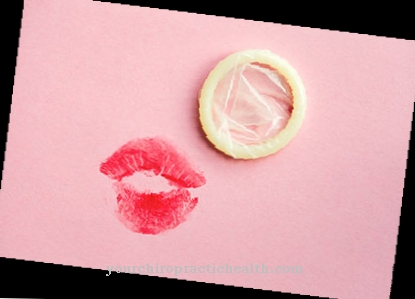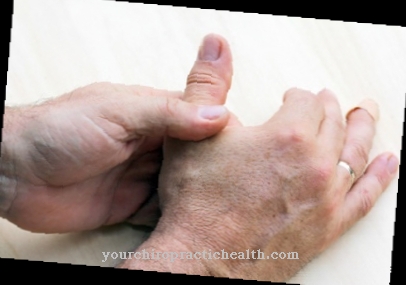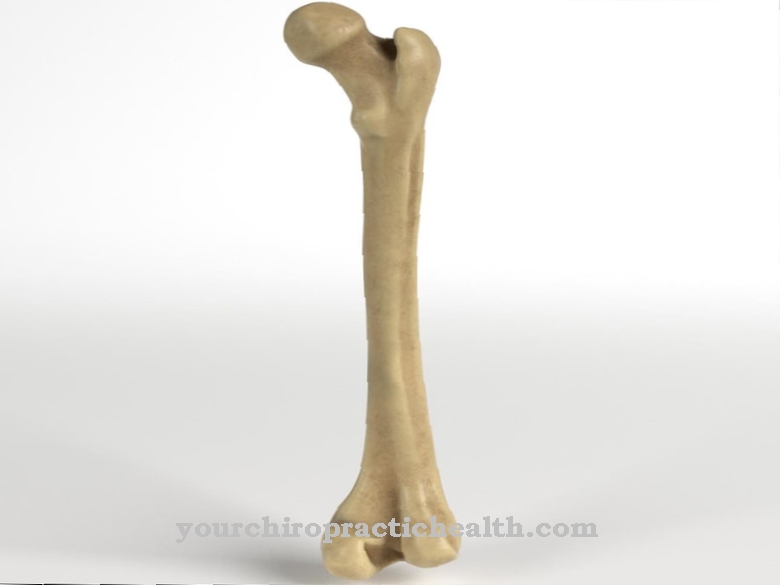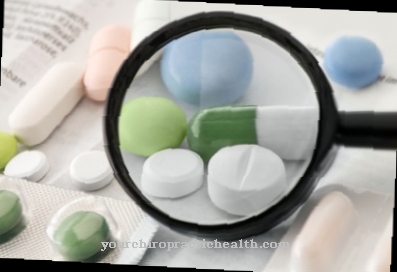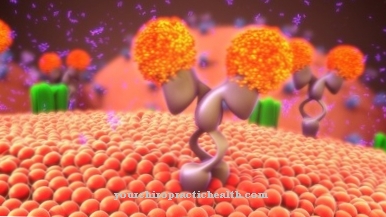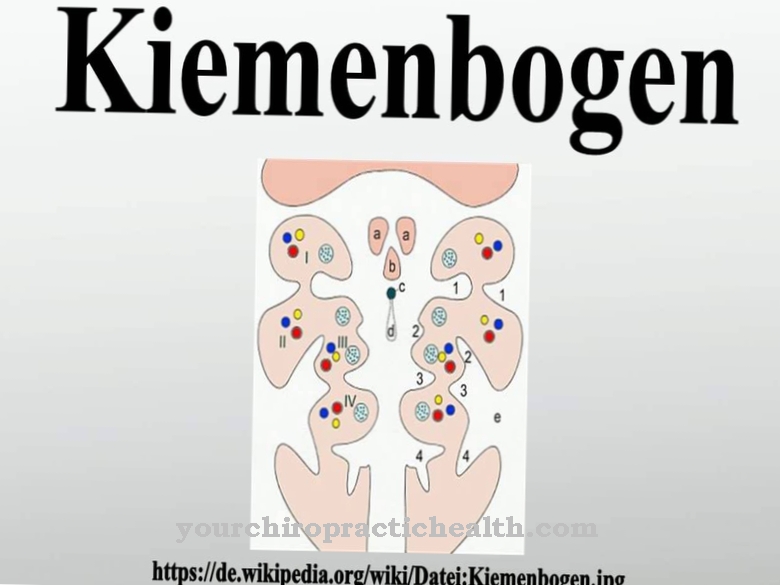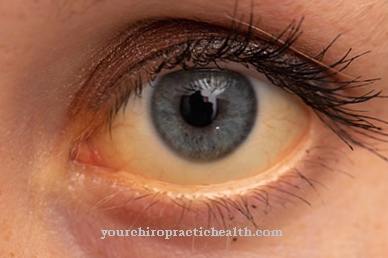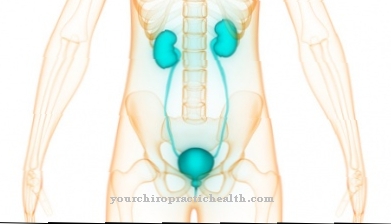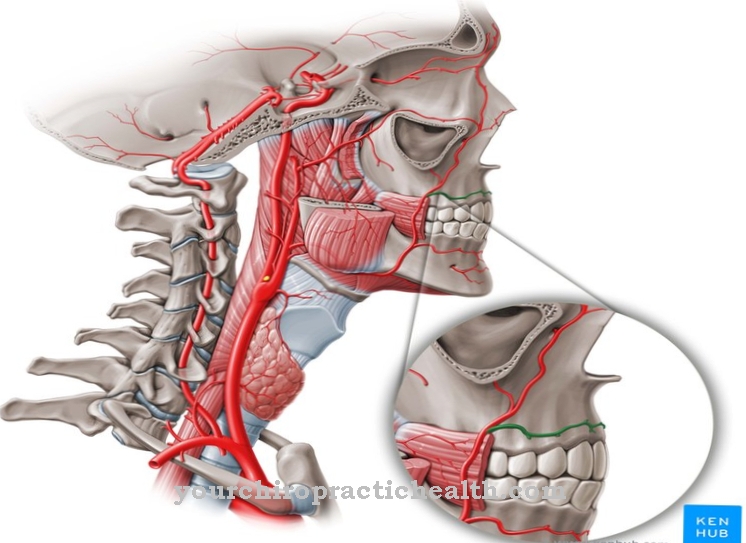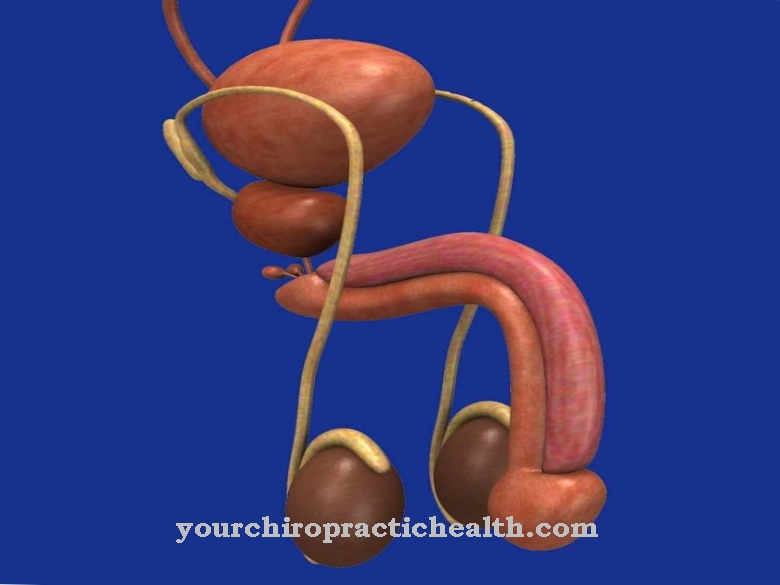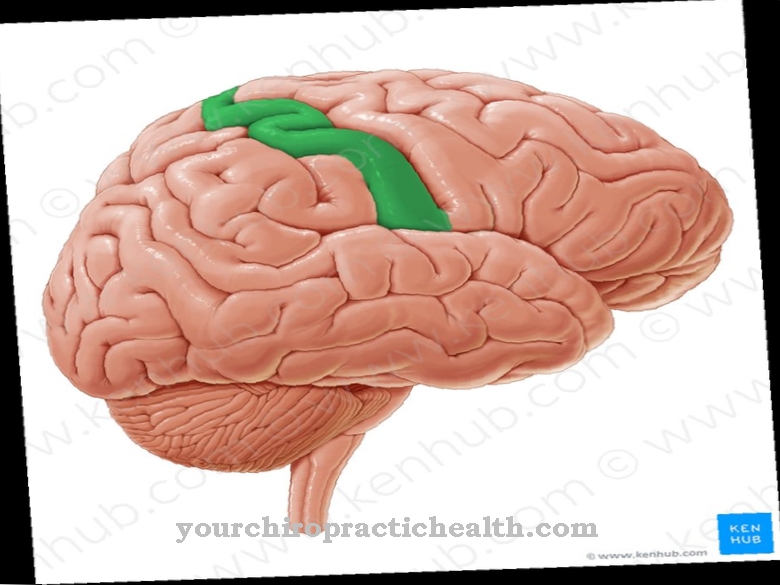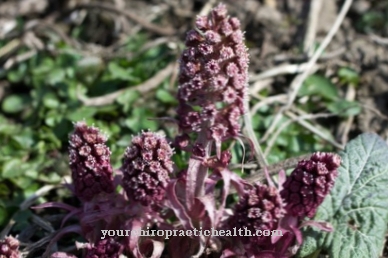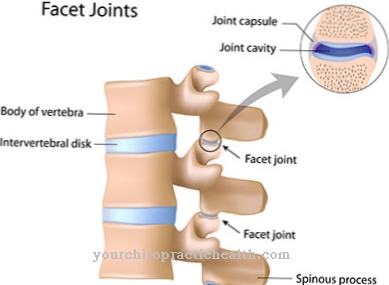As Giardiasis is an infection of the intestine that is caused by parasites. The disease occurs more frequently in childhood and can be easily treated with antibiotics. Around 200 million new infections are recorded worldwide every year, giardiasis mainly occurs in tropical countries.
What is giardiasis?
.jpg)
© Bulan - stock.adobe.com
Giardiasis is an intestinal infection that is caused by unicellular parasites and leads to inflammation and functional limitation of the small intestine.
This can cause diarrhea and nausea. The pathogens are transmitted through the excretions of infected people and animals. Giardiasis is often found in developing countries as a result of poor hygiene.
In our latitudes it is mainly smaller children and people who ingest contaminated water who get sick. Many people affected become infected with giardiasis while traveling to developing countries.
causes
The Giardia Lamblia parasite is considered to be the cause of giardiasis. Hence the disease is also often called Lambliasis designated. The same pathogens can cause giardiasis in dogs and cats. As a result, these animals can also transmit giardiasis to humans.
Those affected can be infected through faeces, contaminated water or food that has been associated with the pathogen. The Giardiasis pathogen comes in two forms. Cysts can survive outside the body and are considered to be the cause of giardiasis. Even people who themselves remain symptom-free excrete the pathogen over several months and can thus become a high risk of infection with giardiasis.
The ingestion of ten cysts can trigger an infection with giardiasis. It is estimated that in countries with poor hygiene, up to 30% of the population are infected with giardiasis.
You can find your medication here
➔ Medication for diarrheaSymptoms, ailments & signs
Giardiasis is usually a harmless disease. Many people don't develop symptoms at all. However, these people still excrete the pathogen in their stool for a long time and can thus transmit the disease further. However, when it comes to discomfort, the most typical symptom is long-lasting and recurring diarrhea.
In addition, those affected often suffer from unexplained abdominal pain and a feeling of fullness.It is not uncommon for the pain to be colic-like abdominal pain. In addition, there is often nausea and vomiting. The diarrhea has a foamy, watery consistency. Sometimes the diarrhea is bloody. Constant flatulence is also a typical symptom.
In protracted cases, water can accumulate in the tissue (edema). With particularly severe diarrhea, the absorption of nutrients in the intestine can be disturbed. As a result, malnutrition is possible. The pancreas and bile ducts can also rarely be affected. Particularly in the case of a massive infestation with the parasite Giardia lamblia or in immunocompromised people, acute pancreas or biliary infections sometimes occur, which lead to severe complaints.
An infection during a trip is also typical. If the traveler's diarrhea is caused by the pathogen Giardia lamblia, it remains as mild diarrhea for several weeks after returning home. In extremely rare cases, mainly in immunocompromised people, giardiasis can also be fatal.
Diagnosis & course
For the most part, people infected with giardiasis remain symptom-free. If symptoms occur, it will happen about two weeks after infection. Giardiasis manifests itself as diarrhea, gas, and nausea. Fever and vomiting are also less common.
If you suspect giardiasis, you should see a doctor immediately. He will first try to detect the pathogen using a stool sample. If this does not succeed, several fresh stool samples are used.
A reflection of the small intestine also brings security. During this endoscopy, a special instrument is inserted through the mouth. It is also possible to take a tissue sample during this examination to detect giardiasis.
If the infection is left untreated for more than a week, it can damage the lining of the small intestine and hinder the absorption of nutrients.
Weight loss and anemia can result. Giardiasis usually has a more severe course in people with a weakened immune system. With drug treatment, the symptoms subside two to three weeks after infection. In individual cases it is possible that the giardiasis recurs.
Complications
In most cases, giardiasis does not cause any particular complications. This disease can be limited and treated relatively well with the help of antibiotics and in most cases leads to a positive course of the disease. Those affected suffer from discomfort in the region of the abdomen and stomach. This leads to severe abdominal pain, stomach cramps and diarrhea.
Flatulence can also occur and be associated with nausea and vomiting. It is not uncommon for patients to suffer from a loss of appetite and thus consume less food and fluids. In most cases this leads to underweight or deficiency symptoms. Dehydration also has a very negative effect on the patient's health. A fever can also occur.
Giardiasis reduces the quality of life of those affected extremely. There is a feeling of exhaustion and a general feeling of illness. The immune system is weakened, so that the person affected can also get other infections or diseases. When treating giardiasis with the help of antibiotics, there are no special complications. The symptoms disappear relatively quickly and there is no reduction in life expectancy.
When should you go to the doctor?
In most cases, giardiasis can be treated relatively easily and quickly with the help of antibiotics. A doctor should be consulted quickly, as self-healing does not occur and the use of antibiotics can prevent further complications and complaints.
Those affected should then consult a doctor if diarrhea or severe pain in the stomach and abdomen occurs. Flatulence or severe nausea with vomiting can also indicate giardiasis and should be examined if they occur over a long period of time.
Likewise, those affected often suffer from a loss of appetite and thus also from weight loss. Talk to a doctor if you have a fever, general tiredness or fatigue. Giardiasis can be treated by a general practitioner or by a pediatrician. An examination by an internist is only necessary in a few cases. With early diagnosis and treatment, the disease always progresses positively.
Doctors & therapists in your area
Treatment & Therapy
If the diagnosis is confirmed and there is giardiasis, antibiotics are used. The drugs kill the bacteria and prevent them from multiplying. In most cases, doctors prescribe the drug metronidazole for giardiasis.
The active ingredient contained therein is converted by the pathogens of giardiasis into an intermediate product that attacks the DNA of the parasites. The tablets should not be crushed by the patient before taking them, as they have a very bitter taste. Metronidazole should not be used in people with blood disorders and pregnant women.
Alcohol consumption should be avoided during therapy, as severe side effects must be expected. Albendazole or mebendazole are prescribed as alternative drugs.
Outlook & forecast
In people infected by Giardia lamblia, the pathogens adhere non-invasively to the mucous membrane of the intestine. The mucous membrane cells are not destroyed. However, their function can suffer from the infestation. Inflammation is also possible.
Malnutrition sometimes occurs when the disease is severe. However, the course can also be entirely unspecific. There are people who carry the pathogen in their digestive tract, but who still show no symptoms of the disease. However, they also excrete cysts for months.
If the hygiene is inadequate, these infect other people. Usually, however, the immune system manages to kill the pathogen within a few weeks. On the other hand, weakened people are susceptible, be it due to a previous illness or a poor general or poor nutritional status. Here the prognosis is usually worse than for people with an intact immune system.
The first means of treatment is the germicidal preparation metronidazole. Even with successful treatment, gastrointestinal problems can occur for months. Giardiasis is thought to cause irritable bowel syndrome and sometimes even food intolerance. Overall, however, the therapy options for Giardia lamblia are now well developed.
Germicidal drugs in particular achieve good success rates. Careful, accompanying hygiene measures are important for a positive prognosis. Above all, they should prevent re-infection and have a preventive effect.
You can find your medication here
➔ Medication for diarrheaprevention
Children between the ages of one and three years, people with reduced stomach acid and people who have blood group A are considered to be special risk groups for giardiasis infection. Particular caution is required when traveling abroad.
You should wash your hands frequently and always heat food sufficiently. Boil water for at least ten minutes. Drinks should only be drunk from factory-sealed containers. The risk of contracting giardiasis is particularly high in Turkey, India or Egypt.
Aftercare
Usually, aftercare is not required for giardiasis. However, the trigger should be identified as quickly as possible so that the disease does not recur. The contact to the trigger is of course to be broken off quickly. In general, an early diagnosis has a positive effect on the further course of this disease.
Giardiasis is usually treated with the help of antibiotics. The person concerned must ensure that these medications are taken correctly, whereby antibiotics should not be taken together with alcohol in order not to lose their effect. In the event of interactions, a doctor should always be contacted first to prevent them.
If the person concerned is pregnant, this should be mentioned during the treatment in order to choose another medication for treatment if necessary. A high level of hygiene can also prevent giardiasis and should always be maintained.
Drinks should only be drunk from completely closed containers. The immune system should not be unnecessarily stressed during this infection in order to accelerate healing. You should also pay attention to light food so as not to overwhelm your stomach. As a rule, giardiasis heals completely.
You can do that yourself
The antibiotic treatment of giardiasis can be supported by a few hygienic measures. Those affected should wash their hands regularly and avoid contact with other people. Appropriate precautionary measures prevent the pathogens from being carried off or passed on to other people. In risk areas, infection can be avoided by boiling water and not eating uncooked fruit and vegetables.
Alcohol should be avoided during therapy, as the active ingredients contained can cause severe interactions. In general, you should pay attention to a gentle diet without stimulants. Foods such as white bread and rusks as well as chicken broth and soft-boiled vegetables have proven successful.
It is also important to take care of yourself, as the body and especially the immune system is heavily stressed during the acute phase of the illness. Any fluid loss due to vomiting and diarrhea should be compensated for by drinking plenty of clean water. In the case of severe deficiency symptoms, dietary supplements such as electrolyte solutions or vitamin tablets are ideal.
If the giardiasis has not subsided after a week at the latest, a doctor must be consulted. Any complications and unusual symptoms should also be discussed with the responsible doctor in order to avoid a severe course.


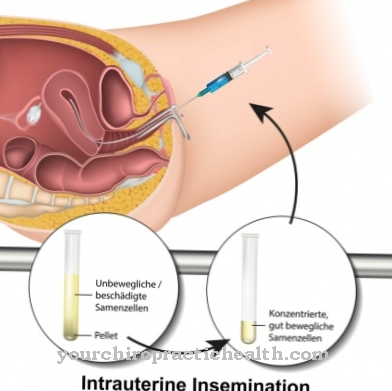

.jpg)

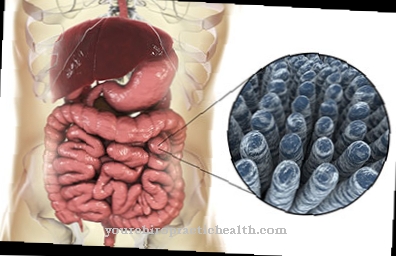

.jpg)
